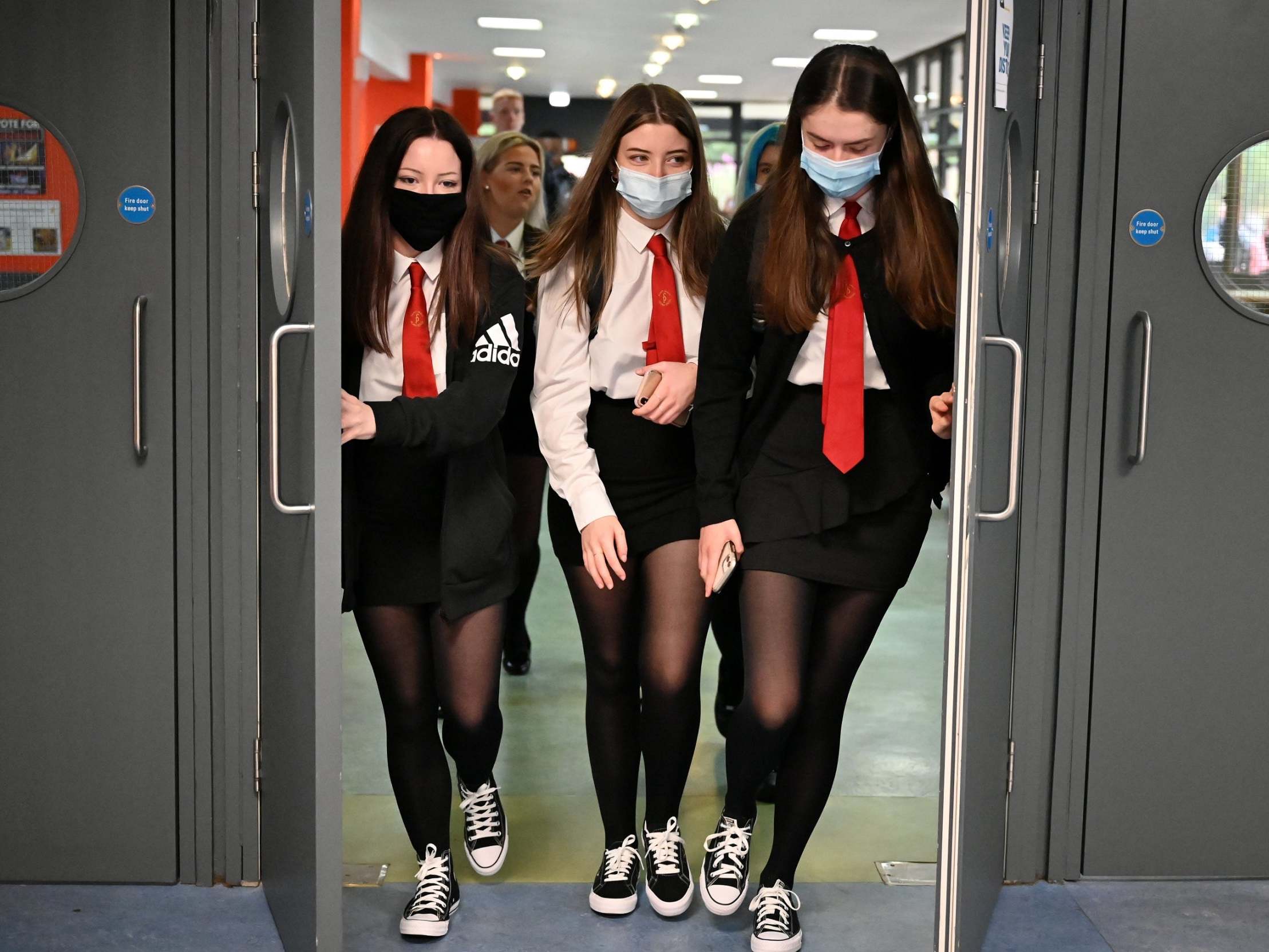Coronavirus: Government considering ‘rota system’ for secondary schools hit by local lockdowns
Plan would see some year groups sent home on certain weeks to reduce pupil numbers in schools
Boris Johnson’s government is considering a plan to advise secondary schools to operate a “rota system” to reduce the number of pupils in classes if a local spike in Covid-19 infections leads to renewed lockdown restrictions, The Independent understands.
One option under discussion would be for some secondary year groups to attend school on certain weeks, before switching with other year groups. Primary schools would be expected to remain fully open in the event of a local lockdown, since transmission rates are lower in younger children.
Geoff Barton, general secretary of the Association of School and College Leaders (ASCL) union, said he was “frustrated” it has taken so long to begin discussing the possibilities with the Department of Education (DfE) given the “imminent” reopening of schools.
Headteachers in England are urging the government to set out “clear” rules on what happens if there is an outbreak of coronavirus either inside their school or in the local area.
With only one week before children are expected to return to classes, education unions and school leaders said there was still confusion over when exactly schools would be expected to send home class or year group “bubbles”, or shut down entirely.
“We are in discussions with the Department for Education about proposals for a tiered approach to local lockdowns which sets out a number of options over the operation of schools in the event of restrictions caused by coronavirus spikes,” Mr Barton told The Independent.
“It is important that there are more options than simply returning to a situation where most children have to return to learning from home, and which best provide continuity of education,” he added. “We are frustrated that it has taken so long to reach this point given that the reopening of schools is imminent.”
Steve Chalke, founder of the Oasis Community Learning trust of 52 academies, said his group of secondary schools had made its own plans to set up a “rota” system if a spike in infections occurs.
“I think it would be really good if the government did provide more guidance [on outbreaks]. We are ready to rota where we need to,” he said. ”We thought we needed to get on with it, rather than hang around.”
Mr Chalke said Oasis schools have invested in “digital devices” so students told to remain at home for certain weeks can be given course work to do remotely.
Schools are supposed to contact Public Health England and their local authority if any students or staff test positive for Covid-19. However, it remains unclear on how big an outbreak would have to be for a class or year group “bubble” to be sent home – or for the whole school to close.
Warren Harrison, head teacher at the Premier Academy primary school in Milton Keynes, said the school had not received “any guidance” on dealing with outbreaks.
“I would like rules,” he added. ”I would like to know … how many infections, across how many bubbles, do we need to hit before a decision needs to be taken on sending everyone home?”
Kay Mountfield, headteacher at Sir William Borlase’s Grammar School in Buckinghamshire, urged the government to set up a dedicated helpline for schools to advise them how to deal with cases of coronavirus.
“I would welcome clear guidance from the government – but individual schools will be dealing with different scenarios. So a helpline with trained people would be great at answering all these questions,” she said.

The government is under increasing pressure to review the use of masks in England’s schools, after the Scottish government said secondary pupils in Scotland would be required to wear face coverings in communal areas between lessons from next week.
Hinting at a possible U-turn on the issue, Mr Johnson told reporters his government will “look at the changing medical evidence as we go on”, adding: “If we need to change the advice then of course we will.”
The Premier Academy decided to make face masks mandatory when walking around communal areas, and is providing visors to both teachers and pupils to be worn in class.
“We had to take some decisions weeks ago, based on the absence of government advice,” said Mr Harrison.
The DfE is expected to provide schools with more information on dealing with Covid-19 cases in the coming days.
A spokesperson for DFE said: “Schools across the country are putting in place a range of protective measures to ensure children can get back into their classes safely, and we are working with the sector to help them to be as prepared as possible with clear guidance for opening as well as contingency planning in the event of a local lockdown.”
Join our commenting forum
Join thought-provoking conversations, follow other Independent readers and see their replies
Comments
Bookmark popover
Removed from bookmarks